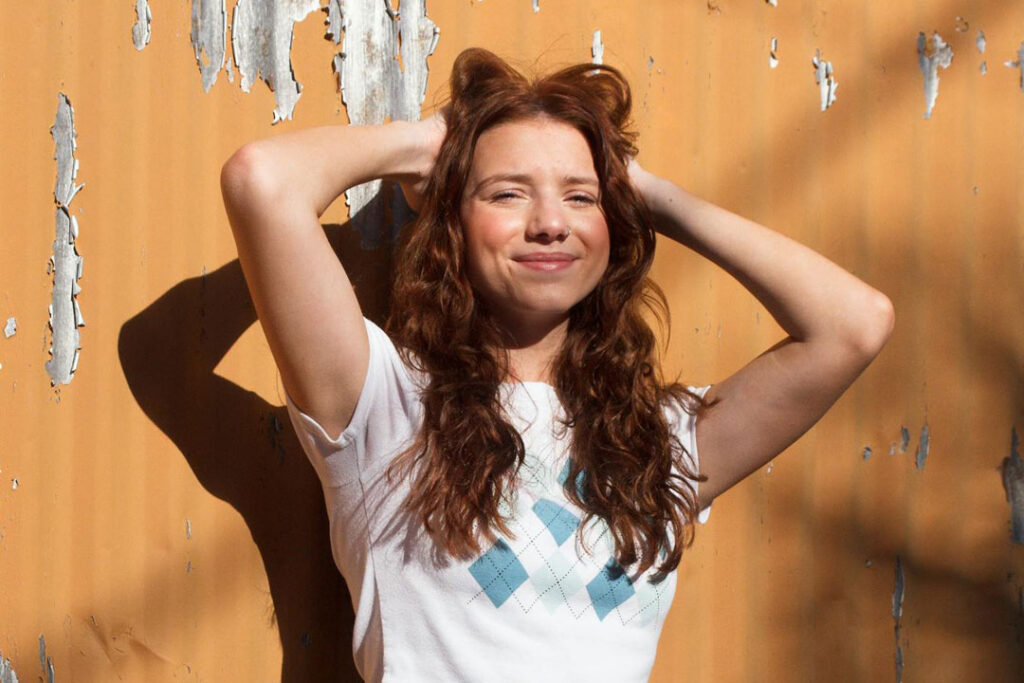
Written By
If you buy something through our links, we may earn an affiliate commission, at no cost to you. We only recommend products we genuinely love.
When it comes to taking care of our hair, I have heard this advice quite a bit: putting oil on your scalp to make your hair last longer between washes. But honestly, that just does not make sense to me. The idea is that by applying oil to your scalp, it will somehow slow down how quickly your scalp produces its natural oils. However, this does not align with what our scalps naturally do. What really happens is that it makes your scalp look even oilier without really fixing the issue.
Personally, I like using oils on my hair, but not for this reason. In the middle of the week, when my hair starts feeling a bit dry, I put oil on the lengths and ends. This helps with detangling, makes my hair easier to manage, reduces frizz, and gives it a shinier and smoother look. It is about keeping my hair healthy, not trying to change how quickly my scalp makes oil. If your scalp is oily, piling on more oils will not help you go longer without washing—it is about understanding what your hair really needs.
In the vast world of hair care advice, I have come across the notion that your hair can never reach its full potential with just drugstore products. Additionally, I have heard claims from individuals quoting their professional hairstylist friends, stating that only salon shampoos are suitable, and that drugstore alternatives can ruin your hair. Frankly, I find this notion to be quite misleading. While it is not always the case, I often notice these statements coming from people who may have something to gain by promoting specific products.
It is crucial to scrutinize the source of such advice and understand their motives. Contrary to these beliefs, there are fantastic drugstore hair care products that not only will not harm your hair but also will not hinder it from reaching its full potential. I have personally used and loved products like the L’Oreal Ever Pure Shampoo and Conditioner—a fabulous set that has worked wonders for my hair. The EVA NYC Mane Primer is another gem, especially for detangling unruly hair. Heritage by Mindy offers excellent options, and their Apple Cider Vinegar Rinse is my favorite at an affordable price point. While I cherish these products, it is essential to acknowledge that not all drugstore products are created equal, and there are some that I would not recommend based on personal experiences.
In the area of questionable hair care advice, one component that sticks out is the recommendation to visit mattress with wet hair. This is a practice I would strongly recommend in opposition to, generally due to the delicate nature of wet hair. When our hair is moist, it’s far more vulnerable to damage, and laying down on a pillow while it is wet best increases the risk of breakage. The consistent rubbing back and forth as we pass at some point of sleep can take a toll on our hair strands. However, if you nevertheless need to go to mattress with moist hair, there’s a better way to head approximately it.
I might recommend setting your hair in a protective coiffure to reduce the risk of damage. Personally, I choose sound asleep in twists or braids, as it not simplest maintains my hair contained and protected however also reduces the friction on the pillow, lessening the chance of breakage. The secret’s to have as a minimum a number of your hair blanketed as opposed to letting all of it lay free at the pillow. Another useful alternative is using a satin pillowcase or a satin bonnet, providing a smooth floor that reduces friction and protects your hair from capacity harm.
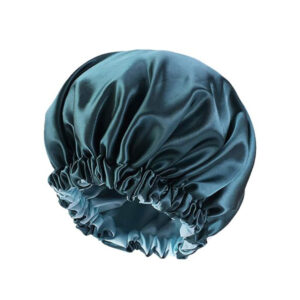
When it comes to protective sleep styles, the high bun might seem like a popular choice, but I am here to caution against it. In my opinion, the high bun is a hairstyle with a high chance for breakage, making it less than ideal for a protective sleep style. The issue lies in the fact that a high bun involves pulling your hair from multiple directions. Not only is it tugging at the roots on your scalp because it is balanced on top of your head, but it is also exerting tension and twisting on the lengths and ends as you wrap your hair into the bun.
This creates a scenario where breakage can occur from various angles. While opting for a loose bun can reduce the risk to some extent. Keeping your hair low and very loose eliminates the need for excessive manipulation, minimizing the potential for breakage. As an alternative, I have found that sleeping with loose braids provides a balance between protection and comfort, ensuring a gentler experience for your hair during the night.
wetting our hair frequently, especially on a daily basis, starts a cycle of swelling and de-swelling. This repetitive action, coupled with other factors, ultimately leads to hair damage over time. The significance of minimizing water-induced damage became apparent, and I noticed improvements in the health of my hair.
Beyond water damage, shampooing poses its own challenges. Shampoos, designed to eliminate build-up, dirt, and oil, unintentionally strip away some of the hair’s natural oils.
Mechanical stress and shampoo and water-induced damage are aspects often overlooked in the broader conversation. However, it is important to acknowledge that washing less may not be suitable for everyone. Certain scalp conditions may worsen with infrequent washing, emphasizing the need to prioritize overall scalp health.
In essence, the takeaway is not a one-size-fits-all approach but a consideration of individual needs. Conversely, for those experiencing discomfort with a dry and itchy scalp or flakes, more frequent washing may be beneficial. So, my intention is not to impose my routine on others but to share what has worked for me.
The debate over how often to brush your hair is a topic with many mixed opinions, and I recently came across a suggestion calling for brushing only once a week in the shower. While I agree that immoderate brushing can certainly cause hair damage, particularly when coping with tangles, I believe there may be a balanced method to hold healthful hair. Personally, I propose brushing your hair daily to save you the formation of cussed tangles and knots. For those of us with tangly hair, the idea of brushing only as soon as per week is pretty chilling, as it will increase the probability of breakage while tangles are left unattended. However, it is critical to alter the frequency primarily based for your hair type, and in case your hair requires extra care, brushing greater regularly may be necessary.
When it comes to brushing in the bathe, you want to be very cautious, mainly when you consider that wet hair is greater fragile. Tugging at wet hair can cause breakage, so it is essential to be gentle and adapt this method in keeping with your hair’s desires.
For added slip and ease of detangling, particularly when your hair is dry, consider using a mist of oil on your lengths and ends. I have found that applying a small amount of oil mist can effectively work the shine provided by conditioner, offering a smoother brushing experience. Products like the Shine Oil Mist or Caviar Smoothing Oil Mist can be excellent choices to add into your hair care routine for added nourishment and detangling. Ultimately, finding the right balance in brushing and using gentle techniques can contribute to maintaining the health of your hair.
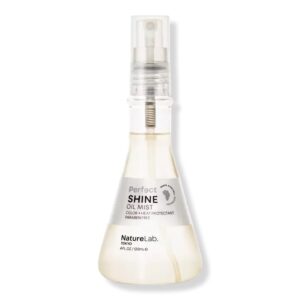
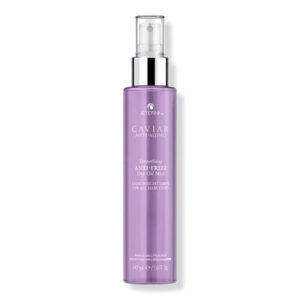
Let me emphasize with the maximum urgency: please, for the sake of your hair, refrain from washing it with baking soda. I plead with you to take into account the pH degree of baking soda, which falls among eight and nine. Any product or ingredient with this kind of high pH can clearly wreck your hair by means of causing it to swell, ultimately increasing its sponginess. Higher sponginess method greater vulnerability and capability harm. Using baking soda, or any excessive-pH product for that rely, poses a hazard to the health of your hair.
Instead, choose a gentler and powerful opportunity, along with a clarifying rinse, that could provide the cleansing benefits without subjecting your hair to the risks associated with baking soda. A first rate advice for a clarifying rinse is the OUAI Detox Shampoo. One of its standout features is the inclusion of chelating agents, specifically formulated to combat difficult water deposits and impurities. This way saying goodbye to the unwanted buildup which could crush your hair. Apple Cider Vinegar takes center degree on this product, bringing a natural exfoliating energy to the combination. Not most effective does it effectively take away flakes, residue, and buildup, however it additionally contributes to the overall health and shine of your hair.
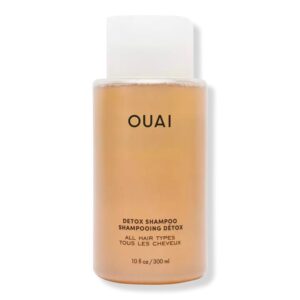
Let’s talk about the idea that oil masks do not work because oils just stay on top of your hair. It is true that not all oils are the same, but saying oil masks are pointless overlooks some important facts. Certain oils, like coconut oil, can actually go into your hair, providing nourishment from the inside. This challenges the idea that oils only stay on the surface.
Even if some oils mainly stay on your hair, they bring a lot of good stuff. They make a protective layer, guarding your hair from strong shampoos, making it easier to manage, reducing frizz, and giving it a shiny look. Very importantly, hair oil masks help in keeping your hair hydrated. Just imagine, if you don’t drink enough water, you feel thirsty and tired. Similarly, when your hair lacks moisture, it becomes dull and lifeless. Oil masks act like a drink for your hair, making it soft and silky.
Secondly, these oil masks are like superheroes fighting against hair damage. They create a protective layer around each strand, shielding it from the harmful effects of pollution, sunlight, and styling tools. Massaging oil into your scalp not only feels relaxing but also improves blood circulation, promoting hair growth.
So here I am closing the chapter on misguided hair care tips and myths. I have walked you through the worst advice on social media and debunked those pesky hair myths.Let’s make informed choices, say no to damaging trends, and revel in the beauty of our healthy hair.